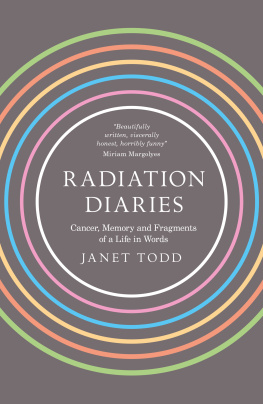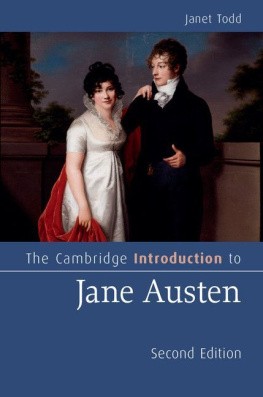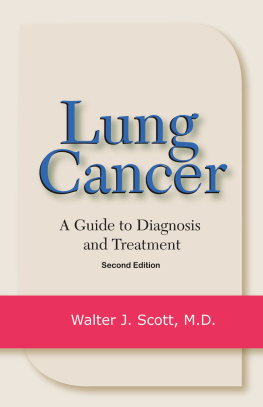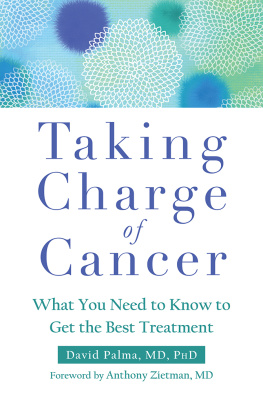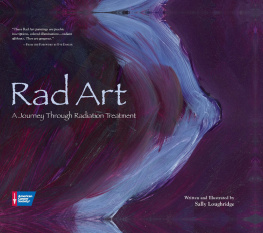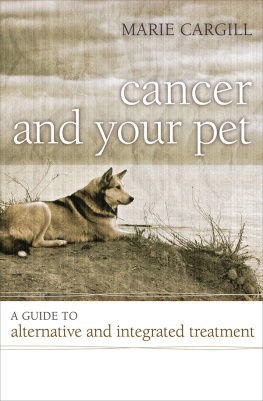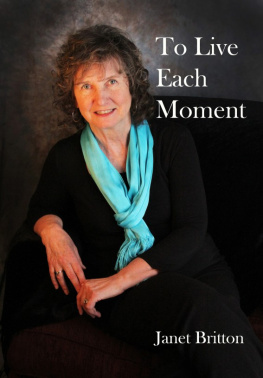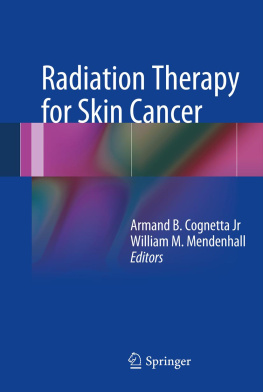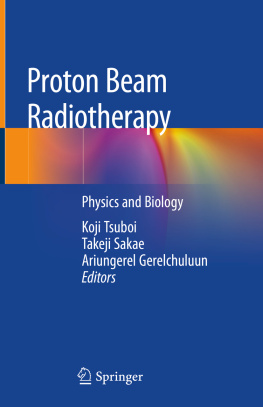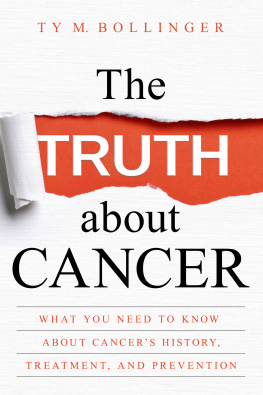
Janet Todd, novelist (A Man of Genius, 2016) and internationally renowned scholar, was until recently President of Lucy Cavendish College, Cambridge. Born in Wales, she grew up in Ceylon, Bermuda, and the UK. She was a Professor of English at Rutgers University, NJ, and at the Universities of East Anglia, Glasgow and Aberdeen. She has also worked as an academic in Ghana, Puerto Rico, and India. An expert on womens writing and feminism and co-founder of the journal Womens Writing, she has published biographies and critical work on many authors, including Jane Austen, the Shelley Circle, Mary Wollstonecraft, and Aphra Behn. Now an Honorary Fellow of Newnham College, she lives in Cambridge and Venice. She is completing her third novel, Dont You Know Theres a War On?
Praise for Janet Todds previous work
Fascinating, a page-turner and a delight Emma Donoghue
A quirky, darkly mischievous novel about love, obsession and the burden of charisma, played out against the backdrop of Venices watery, decadent glory
Sarah Dunant
Strange and haunting, a gothic novel with a modern consciousness
Philippa Gregory
Revealing, surprising, compelling
Miriam Margolyes, actress
A mesmerizing story of love and obsession in nineteenth-century Venice: dark and utterly compelling
Natasha Solomons
Intriguing, pacy and above all entertaining; a clever, beguiling, debut
Salley Vickers
Genuinely original
Antonia Fraser
A rip-roaring read
Michle Roberts, Sunday Times
Terrific insight. Todds sound and generous reimagining of womens lives is a splendid work
Publishers Weekly (Starred)
Mesmerizing and haunting pages from a gothic-driven imagination
Times Literary Supplement
Gripping, original, with abundant thrills, spills and revelations
The Lady
A haunting, sophisticated story
Sunday Times
A real knack for language with some jaw-droppingly luscious dialogue. I can see the authors pedigree in the story, style and substance of the book: think The Elegance of the Hedgehog
Geoffrey Jennings, Rainy Day Books
Janet Todd is one of the foremost feminist literary historians writing in this country. She has devoted her literary career to recovering the lives and works of women writers overlooked and disparaged by generations of male literary scholars
Lisa Jardine, Independent on Sunday
Janet Todd guides us with unfailing buoyancy and a wit all her own. [Behn] is now wondrously resurrected
Michael Foot, Evening Standard
Thorough and stimulating. A fascinating study
Maureen Duffy, Literary Review
Janet Todd, a feminist scholar, has done a great deal of groundbreaking scholarship on women writers of the long eighteenth century. [Her work] reads quickly and lightly. Even Todds throw-away lines are steeped in learning and observation. Todd has documented so ably the daring attempt of a woman to write, both for her daily bread and for immortal fame
Ruth Perry, Womens Review of Books
Radiation Diaries
Cancer, Memory and Fragments of a Life in Words
JANET TODD

Fentum Press, London
Sold and distributed by Global Book Sales/Macmillan Distribution and in North America by Consortium Book Sales and Distribution, Inc., part of the Ingram Content Group.
Copyright 2018 Janet Todd
Janet Todd asserts the moral right to be identified as the author of this work
A CIP catalogue record for this book is available from the British Library
ISBN (paperback) 978-1-909572-17-1
Typeset by Palimpsest Book Production Limited, Falkirk, Stirlingshire, Scotland
Printed and bound in Great Britain by
CPI Group (UK) Ltd, Croydon CR0 4YY
All rights reserved. No part of this publication may be reproduced, stored in a retrieval system or transmitted in any form or by any means, electronic, mechanical, photocopying, recording or otherwise, without the prior permission of the publishers.
Contents
Radiation Diaries
Its near midwinter. I face over a month of whole pelvic radiotherapy. Being a wordy person, I need a verbal sedative: I resolve on a diary. The subject will be Life in Hospital-land.
Pro: a diary should prevent excessive talking of symptoms. As the president of a Cambridge college, I might embarrass colleagues whod be too polite to protest. Writing should deliver a little detachment?
Con: a diary will be indecorous and excremental. See Web descriptions of Side- and After-Effects.
The fox knows many things, the hedgehog only one. This enigmatic saying is often interpreted as the hedgehog knows how to escape.
Rolling into a ball and displaying prickles seems to me a good metaphor for fear.
7 December, Wednesday
Around 4 a.m. my panicky Web-searching focuses on percentages of recovery from 3 cancers strictly 2 cancers and a vault recurrence, but a little hyperbole is justified: treatment will be radical, serious, no half-and-half affair.
Sometimes the whole control group is dead after a year or so.
I think. A lifetime of reading and teaching reading and now I sit skimming words, unsure what Ive seen.
Back to bed. I burrow under the duvet and beg the bladder for a truce. It refuses. As if it knows.
The first cancer, 2 years ago, was bladder it weathered its chemo. Then came endometrial and now a vaginal recurrence, demanding this brutal radical treatment. Along with other organs down there, the chastened bladder will feel the fire. No wonder its terrified and shivering.
Up again in under 10 minutes.
Must be on the road by 7.20 with kind D, whose healthy mornings it was supposed to be his research leave will be ruled by this, caught in another persons ordeal.
Im too worried to drive. I visualise the grim concrete car park with me scraping its sharp pillars against the cars soft metal. The idea of the ageing car makes me almost teary. Aw shucks, as Goofy used to say. Dead I suppose by now.
I hate but lean into the uncommon dependence.
D will drive deftly and slowly and well always arrive early.
Should I have breakfast? Brown toast and an orange too much? A banana? I so want to do the right thing.
I put on my new hospital kit: baggy red skirt from Laura Ashley to keep parts aired, no more sleek Viyella trousers from Jaeger; long socks from M&S to avoid pantyhose; waist-high cotton knickers, no synthetic briefs.
Its pitch dark as we leave. The cars clammy. Were silent. No sign of dawn, cold, wintry.
Not my funeral, I say.
A little deaf, D doesnt hear.
What in me is dark illumine, I mutter. This time D catches the sound and the reference. Not seeing the relevance of Paradise Lost. Me neither.
Switch on the sun, please.
In my solitary mid-teens, I filled a 5-year diary, not with my life, but with worthy quotations from Colin Wilsons The Outsider and masters like Thomas Mann or Aldous Huxley, who threw out their phrases world-wearily as partial truths. In Polonius style. This above all: to thine own self be true. Sounds good till you unpack it, which I didnt then. Oh may I join the choir invisible recited at the Baptist social I assumed it implied dying to become a cherub trilling sweet notes: less jolly when I learnt it demanded daring rectitude.
Since abandoning my snippets, I havent looked in books for guidance. Just pleasure, exhilarating sometimes, consoling at others like a solitary walk by the sea. Im not finding much help from English Literature just now. Not even John Milton. Indeed, though useful in times of numbness, EngLit has never much served during the tumults and agitations of life.
Next page
